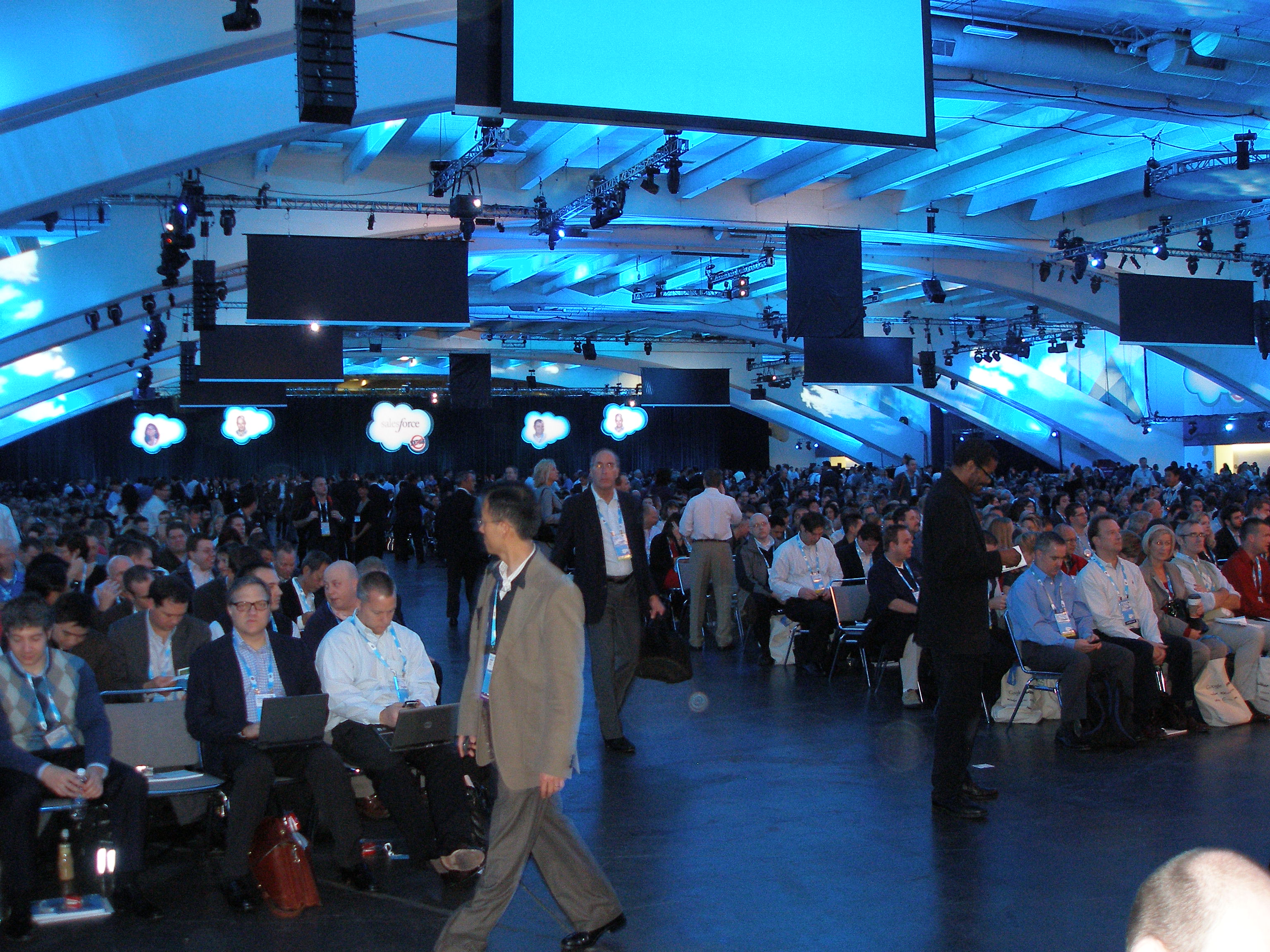Dreamforce post#2: Chatter, Events, REA and the Future of Management

I got chatted up yesterday - so should you
Salesforce.com announced its Chatter capability today. In essence, they’ve married instant communication services like Twitter, social networks like Facebook and data/events from corporate IT systems like SAP, Oracle and Salesforce.com into one integrated application/platform.
Users of Salesforce’s applications will find Chatter a native capability soon. I’ve got a slew of opinions re: this service and here are the positives:
- It’s great to see an application vendor innovate. The fact that people are enthused, engaged and pondering the possibilities of such a solution is something I wish we saw more of in other vendor’s conferences. Dennis Howlett tells me Epicor has created something similar and SAP may have experimented in this area, too.
- Chatter can bring to a business person’s attention all manner of important business events. The ability of the software to pass along key business events emanating out of application systems and databases is particularly welcome. Proponents of REA (Realtime Event Accounting model) will be especially delighted to see this time of technology become available.
On the concern’s side, I worry about these issues:
- Data Overload and Worker Productivity – I’m just not convinced that every worker needs or would benefit from this fountain of information streaming at them non-stop. Sometimes, my best work comes when I step away from all of the distractions and interruptions and concentrate on the task at hand. I don’t want truck drivers reading Facebook updates while on the road. I’m also not convinced that all posts/feeds are valuable. The challenge for the Salesforce.com team will be to develop sophisticated filtering and prioritization tools to make chatter smarter. If Chatter doesn’t improve worker productivity and create value for the enterprise, it could end up getting blocked on corporate networks like some social networking technologies.
- Synthesis – Speaking for myself, I’ve come to loathe certain bulletin boards, IM users, etc. because they do not write effectively. They incorrectly assume that I can somehow read their mind and determine the context of their messages. Equally frustrating is their self-centered view that I have read everything they’ve ever written and remember it. Their communications assume so much context is already present that their newest missives are incomprehensible. I need context and I need someone or a program to structure and synthesize dozens or hundreds of communications to something short, succinct and relevant.
- Conversation vs. Knowledge – Conversation is a luxury. It’s something I do with close colleagues, friends, family and clients. Knowledge is what I need to do my job well. Chatter certainly fills the conversation component well but businesses may need something that converts, filters and/or structures conversation into knowledge. That’s the real challenge and opportunity this kind of technology could bring in time.
- Quality of content - Not all content that is presented to a user of Chatter will be valuable or will be something that the receiver can assist. Yes, users can choose which people they want to Chatter with but still the quality issue will remain. What we’re willing to read in our own time is not what we should be reading during work hours.
Let’s return to the idea of events for a moment. Events in business systems can be internal or external occurrences or data points that warrant a worker’s/executive’s attention. Here are some examples:
- the Federal Reserve moves up the Fed Funds Rate by a full percentage point. This may mean that a company’s cost of capital is going to go up real soon. If it does, a company would want to re-examine its capital expenditure plans, its inventory levels, etc.
- the price of key commodity (e.g., wheat, copper, etc.) goes up/down by 20% in one day’s trading. Should someone in Purchasing, Procurement, Sales, etc. be notified as the company may want to lock in lower prices now or raise prices of finished goods?
- A key customer or supplier has just announced they are in financial difficulty or getting acquired.
- The engineer in your firm with 116 patents to her name has just notified HR that she’s going to go part-time and then go on early retirement.
Business people make decisions based on a number of internal and external events. When certain (not all) changes occur in one’s business environment, some reactions are necessary. Some events create strategic opportunities for the firm but only when they can be acted upon quickly and decisively. This, I believe, is the real opportunity for Chatter. Chatter can turn a moribund, middle-of-the-road firm into a real competitive juggernaut. When Chatter gets event processing fully incorporated into its solution, businesses and management science are in for a real change. For the first time, we could start to see companies managed in real-time.
